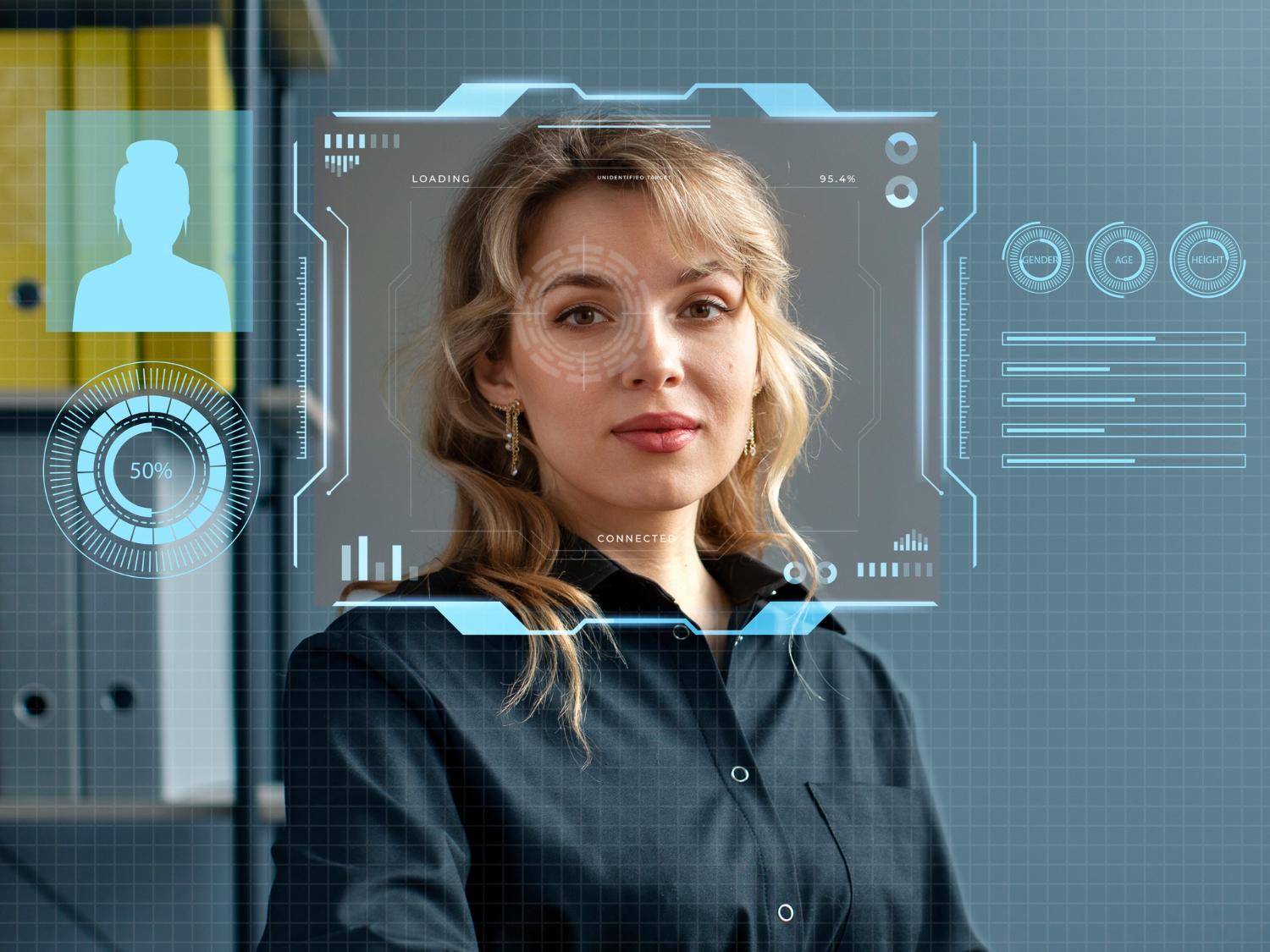Amid the digital transformation sweeping across the hospitality industry, a significant challenge emerges: ensuring robust security without compromising on guest experience. As fraud and identity theft become increasingly sophisticated, traditional verification methods struggle to keep pace, often leading to cumbersome check-in processes that can frustrate guests and erode trust. Enter artificial intelligence (AI) – a game-changer in identity verification, offering a blend of enhanced security and streamlined guest experiences.
This guide explores how AI can revolutionize identity verification, set new standards in trust and safety for the hospitality sector.
The Rise of AI in Identity Verification
The evolution of identity verification methods has been marked by a constant battle against fraud while striving to enhance user experience. From manual checks to digital databases and now to AI, each step forward has aimed to make verification more accurate, secure, and efficient. AI identity verification represents the latest frontier, harnessing machine learning, biometric analysis, and advanced analytics to offer unprecedented levels of security and efficiency. This leap is not just a technological advancement but a fundamental shift in how trust is established between guests and hospitality providers.
AI-powered identity verification systems are designed to detect fraud with remarkable accuracy, adapting to new threats as they emerge. These systems analyse vast amounts of data in real-time, identifying patterns and anomalies that would be invisible to human operators. By doing so, they not only enhance security but also significantly reduce the time and hassle associated with traditional verification methods, directly impacting guest satisfaction positively.
Understanding AI Identity Verification
AI identity verification leverages sophisticated algorithms and machine learning models to authenticate identities quickly and accurately. Unlike traditional methods that rely heavily on manual checks and static data comparison, AI ID verification processes incorporate dynamic analysis, including biometric verification and behavioral analytics. This allows for a more nuanced and comprehensive approach to identity verification, one that adapts and learns from each interaction.
The core difference between traditional and AI-powered ID verification lies in the latter’s ability to continuously improve and adapt. AI systems learn from every verification attempt, becoming more adept at detecting fraud and reducing false positives. This adaptability not only enhances security over time but also ensures that the verification process becomes faster and more user-friendly, a critical factor in the hospitality industry where guest convenience is paramount.
The integration of AI in hospitality is not only about technological advancements but also about balancing digital and human interactions to ensure service quality and personalized guest experiences.
AI ID Verification Techniques
Several AI ID verification techniques are reshaping how the hospitality industry verifies guest identities. FbBiometric recognition, including fingerprint scanning and facial recognition, offers a highly secure and user-friendly way to confirm identities. These methods are difficult to forge and provide a seamless verification process for guests.
Document verification, powered by AI, involves analysing government-issued IDs to ensure they are genuine and match the holder’s biometric data. AI algorithms can detect subtle signs of tampering or fraud that might escape human notice. Facial recognition technology takes this a step further by comparing the photo on the ID with a live image of the guest, ensuring the person presenting the ID is its rightful owner.
The integration of these technologies into a cohesive AI-powered ID verification system offers several benefits. It significantly reduces the risk of identity fraud, streamlines the check-in process, and enhances the overall guest experience by minimising wait times and administrative hurdles. Furthermore, the use of AI in identity verification signals to guests that the hotel takes their security and privacy seriously, further building trust.
A significant concern is the rising use of AI-generated deepfakes that could undermine biometric authentication systems. Gartner predicts that by 2026, 30% of enterprises will consider identity verification and authentication solutions unreliable in isolation due to these deepfake threats.
Implementing AI-Powered ID Verification
The adoption of AI-powered ID verification systems marks a transformative step for hospitality providers aiming to enhance security while ensuring a seamless guest experience. Successfully integrating these technologies into hospitality operations involves several critical steps, starting with selecting the right AI solution that aligns with the specific needs and scale of the business. This selection process must consider the technology’s accuracy, speed, user-friendliness, and compliance with data protection regulations.
Following the selection, the integration phase involves technical setup and alignment with existing hotel management systems. This phase is crucial for ensuring that the AI-powered ID verification process is smoothly incorporated into the guest check-in workflow, enhancing efficiency without creating bottlenecks. Training staff to proficiently use the new system is equally important, as their confidence and competence in handling the technology will directly impact its effectiveness and the guest experience.
Enhancing Guest Experience with AI ID Verification

The ultimate goal of implementing AI ID verification is to enhance the guest experience by making the check-in process as efficient and hassle-free as possible. AI technologies enable instant verification of IDs, reducing wait times and allowing guests to begin their stay without unnecessary delays. Moreover, the precision of AI in detecting identity fraud reassures guests about their personal security during their stay, building trust in the hospitality brand.
AI ID verification can also contribute to personalised guest experiences. By accurately identifying guests, hotels can tailor services to individual preferences and histories, from room selection to personalised greetings. This level of personalization not only improves guest satisfaction but also fosters loyalty, encouraging repeat visits.
Security and Privacy Considerations
While AI ID verification offers numerous benefits, it also raises important security and privacy considerations. Hospitality providers must ensure that their AI systems comply with global data protection regulations, such as GDPR in Europe and CCPA in California. This involves securing guests’ personal information against unauthorised access and ensuring transparency about how data is collected, used, and stored.
Addressing guests’ privacy concerns is essential for gaining their trust. Clear communication about the security measures in place and the benefits of AI ID verification can help alleviate any apprehensions. Additionally, opting for AI solutions that prioritise data minimization and anonymization can further protect guest privacy while still providing the benefits of advanced verification methods.
Training Staff on AI ID Verification Systems
Effective implementation of AI ID verification systems extends beyond the technology itself to include comprehensive staff training. Employees across all levels of hotel operations must understand how the system works, its benefits, and their role in ensuring its success. Training programs should cover the operational aspects of the AI system, including troubleshooting common issues and handling special cases where manual verification might be needed.
Staff training also needs to address how to communicate the new verification process to guests, particularly in terms of its security and efficiency benefits. Empowering staff with knowledge and skills will not only optimise the use of AI ID verification systems but also enhance the overall guest experience through smooth and informed interactions.
Overcoming Challenges in AI ID Verification
Adopting AI ID verification presents its set of challenges, from technical hiccups to guest acceptance. Ensuring system reliability is paramount; downtime or errors can lead to guest frustration and operational disruptions. Regular system testing and having a responsive technical support team are essential for minimising these risks. Educating guests about the benefits and security improvements of AI ID verification helps in overcoming resistance, highlighting the added value to their experience and personal security.
Another challenge lies in the potential for biases within AI algorithms, which can lead to unfair treatment of certain guest demographics. Continuous monitoring and updating of AI models are necessary to eliminate biases and ensure fair and equitable treatment of all guests. Collaboration with AI technology providers to address these issues proactively is crucial for maintaining trust and integrity in the verification process.
Future Trends in AI ID Verification
As technology evolves, so do the possibilities for AI ID verification. The future may see even more sophisticated biometric verification methods, such as voice recognition and vein pattern identification, becoming mainstream. These advancements promise to further enhance security while offering new levels of convenience for guests. Additionally, the integration of blockchain technology could offer decentralised and tamper-proof ways of storing and verifying guest identities, adding an extra layer of security and privacy.
The rise of mobile and self-service technologies in AI ID verification also points towards a future where guests can complete most of the check-in process independently, from identity verification to room key assignment, all through their smartphones. This shift not only streamlines operations but also caters to the growing guest preference for contactless and digital-first interactions.
Conclusion
The integration of AI in identity verification represents a significant leap forward for the hospitality industry, offering a perfect blend of enhanced security, improved efficiency, and elevated guest experiences. By embracing AI-powered ID verification, hotels and hospitality providers can not only meet the evolving expectations of modern travellers but also set new standards in guest safety and convenience.
As we navigate the future of hospitality, let’s harness the power of AI to build stronger trust with our guests, ensuring every stay is secure, personalised, and seamlessly enjoyable. It’s time to explore the possibilities AI ID verification brings to your operations and lead the way in innovation and guest satisfaction.





